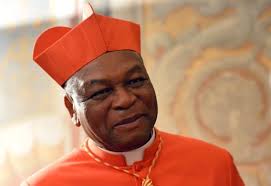After over a decade since a lawsuit was filed by the Attorney General of Lagos State against the Federal Government in respect to who controls and regulates the gaming and lottery sector, the apex court held on Friday that the National Assembly lacked the powers to legislate on issues relating to lottery and games of chance.
The court, in her decision, held that such powers only reside with the State Houses of Assembly, which possess exclusive jurisdiction over lottery and games of chance.
Justice Idris ordered that the National Lottery Act 2005 should no longer be enforced in all states, except the Federal Capital Territory (FCT), in respect to which the National Assembly is empowered to make laws.
Ekiti State, on October 6, 2020, joined as co-plaintiff in the suit following an order of the court. Consequently, attorneys general of 34 other states were joined as defendants by the Supreme Court on November 15, 2022.
In accordance with Part 1 of the Second Schedule of the 1999 Constitution as amended, the plaintiffs had requested that the Supreme Court rule that the lottery was not one of the 68 things for which the National Assembly had the sole authority to enact laws. They also requested a ruling that the National Assembly is not authorized by the Constitution to enact any legislation governing or controlling the lottery industry in Nigeria.
The Supreme Court has set a date to hear the Lagos, Ekiti, lawsuit against FG and 34 other states.
Additionally, they are requesting a ruling that the National Assembly is not authorized by the Constitution to enact any legislation that would govern and manage the lottery industry in Nigeria.
The Supreme Court had earlier fixed March 13, 2024, to hear the lawsuit filed in 2008 by the Attorney General of Lagos State against the Federal Government.
The date for the day’s proceedings was set by a seven-member panel presided over by Justice Kudirat Kekere-Ekun.
Friday’s judgement has, however, indicated a victory for the state, as the apex court granted all the petitions.



































